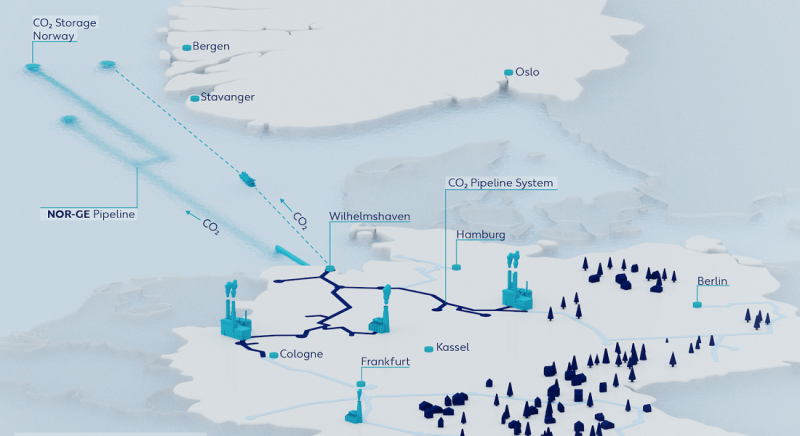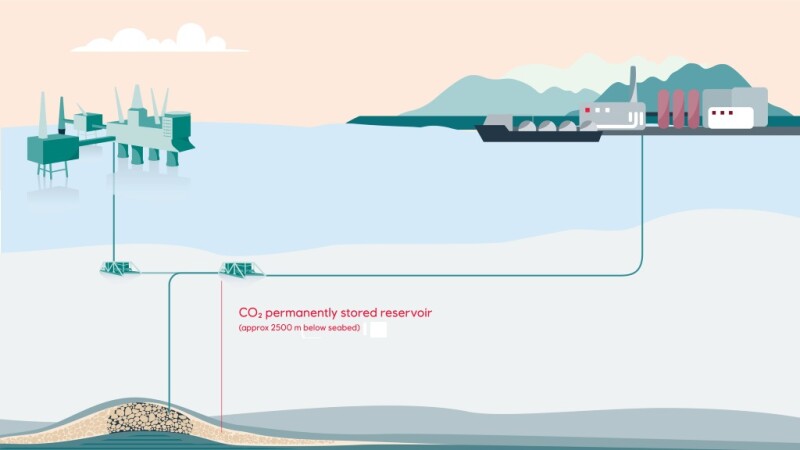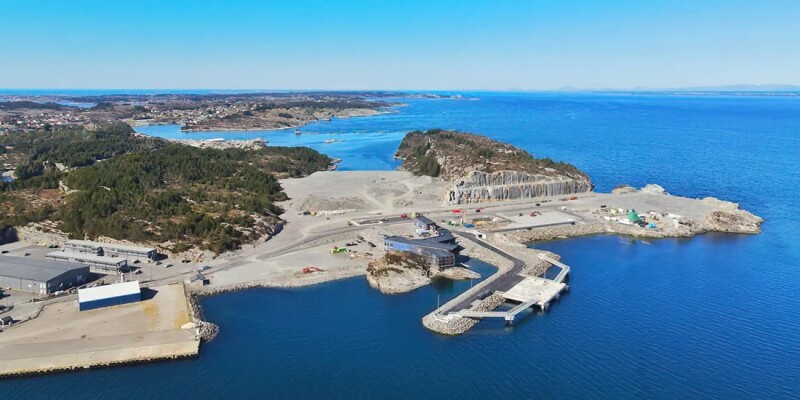Norway’s Equinor and Germany-based European independent oil and gas producer Wintershall Dea have agreed to develop a comprehensive carbon capture and storage (CCS) supply chain system connecting Germany, the continent’s largest carbon emitter, with CSS storage on the Norwegian Continental Shelf.
The Norwegian/German CCS project aims to construct a 900-km-long open-access pipeline linking a CO2 collection hub in northern Germany to storage sites offshore Norway. The pipeline would carry up to 40 million tons of CO2 per year, an amount representing 20% of Germany’s industrial emissions in 2021—181 mtpa as recorded by the country’s state environmental authority.
Initially, CO2 would be delivered to storage facilities by ship because the planned pipeline would become operational only sometime before 2032 and scale up to maximum capacity over 5 years, the two companies said in a joint statement announcing the agreement on 30 August.

But infrastructure isn’t the only challenge.
As Wintershall Dea’s CEO Mario Mehren, put it, “Wintershall Dea and Equinor will work together to establish technical and commercial solutions for the development of cross-border CCS value chains in Europe and work with governments to shape a regulatory framework that can enable it.”
To start, Wintershall Dea and Equinor plan to apply jointly for offshore CO2 storage licenses to sequester between 15 million and 20 million tons per year on the Norwegian Continental Shelf, a figure that will require scaling up as the pipeline comes on stream and builds up to its nameplate 40-mtpa capacity in the next decade.
Norway Scores World’s First Commercial Cross Boarder CO2 Transport Agreement
Meanwhile, one day before the Norway/Germany announcement, Norway’s Northern Lights joint venture, which has crafted its business model around the delivery of carbon storage as a service, inked the world’s first commercial agreement on cross-border CO2 transportation and storage with the Yara Sluiskil ammonia and fertilizer plant in the Netherlands.
Northern Lights is incorporated in Norway as a general partnership with shared liability owned equally by Equinor, Shell, and TotalEnergies. Its agreement with Yara calls for the capture, compression, and liquefication in the Netherlands of 800,000 tons of CO2 per year for transport by ship to Norway, where it will be stored 2,500 m under the seabed off the coast near Bergen starting in early 2025.
With the volumes from Yara, Northern Lights Phase 1 will have reached its full injection capacity of 1.5 mpta, according to Equinor, and the joint venture will proceed to deciding a final investment decision on Phase 2, which would raise storage to a total of 5 million–6 million tons of CO2 per year in 2026.
In announcing the agreement on 29 August at the Offshore Northern Seas conference in Stavanger, Equinor’s CEO and president Anders Opedal hailed the development as “a major milestone for the development of carbon capture, transport, and storage” that opens “a value chain that is critical for the world to reach net zero by 2050.”
In April, Equinor was awarded the operatorship for the development of new CO2 storage facilities in the North Sea (Smeaheia) and in the Barents Sea (Polaris). Smeaheia alone would have a storage capacity of 20 mtpa, according to the Norwegian major.
Wintershall Dea operates three subsea production fields off the Norwegian coast, including the Nova project, which produced first oil on 1 August, the company reported.



